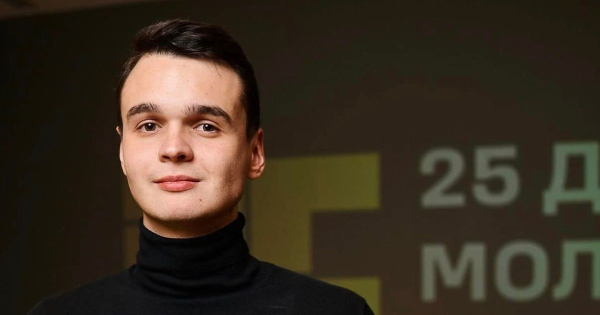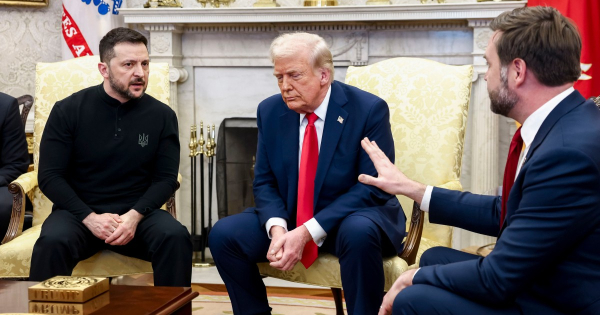
Politicians in Bucharest are thrilled Moldova voted to join the EU in a close referendum held amidst reported disinformation campaigns and hybrid aggression by Moscow.
In a message on X, Romanian President Klaus Iohannis welcomed Moldova’s vote in favour of EU accession and praised the “popular support expressed for President Maia Sandu and democratic values”.
“A nation’s destiny should only be decided by its citizens”, he added, in an indirect reference to Russia’s attempts to influence the vote, which Maia Sandu also condemned at a press conference on Monday.
Prime Minister Marcel Ciolacu was more direct in his remarks, congratulating the Moldovan people for resisting Moscow’s ‘incredible pressure’ and putting their country ‘on the right side of history’. But he also stressed the need to “intensify” efforts to convince citizens in rural and provincial areas that Moldova’s future lies with the West.
“The knife-edge result of the referendum on EU integration shows that we must step up our efforts to convince citizens in rural areas, where Russian propaganda is more effective, that Moldova’s future is with Europe,” Ciolacu wrote on Facebook.
Similarly, PNL MEP Siegfried Mureșan (EPP) does not believe the close referendum result indicates a divided nation. Instead, he argued that despite Russia’s propaganda and heavy involvement, the Moldovan people found the strength to choose Europe.
In his view, the result is “a victory for a guaranteed European future” and a blow to Russia, which mobilised “unprecedented resources to sway the democratic elections and the referendum.”
PNL President Nicolae Ciucă echoed this sentiment, stating that the extremely close referendum result reflected the “manipulative power of Russian propaganda” and Russia’s ongoing hybrid aggression against Europe, especially Eastern Europe.
In this context, Ciucă warned that “Romania’s elections could be the next target of Moscow’s propaganda.” Elena Lasconi, the USR president and presidential candidate, suggested that the Moldovan referendum serves as “a lesson for us too, in Bucharest.”
With Russian propaganda becoming “increasingly aggressive” and the possibility of votes being “bought,” she stressed the responsibility of politicians to rebuild the “fragile bridges between the state and its citizens.” She called for better communication, substantive projects, and fewer “empty words and fantasies.”
Iulian Fota, former presidential adviser and secretary of state at the Foreign Ministry, also stressed the need for better communication in Moldova and Romania.
“We don’t give enough importance to strategic communication, which is a mistake both governments are making,” Fota told Euractiv.
Fota expects surprises in the Romanian elections in November and December and believes that sovereignist parties could gain more influence. He is also optimistic that the pro-European trend in Moldova will continue to grow, as the country has not been exposed to accurate information about the EU in the past.
Following the successful referendum, social-democratic MEP Victor Negrescu (S&D) said that Moldova now has a clear path to complete negotiations by 2030 and eventually join the European Union.
Mureșan, for his part, predicts that the result would encourage Europe to increase support for Moldova’s modernisation further, raising living standards and preparing the country for EU accession.
Fota does not believe the referendum result will hinder the EU enlargement process. On the contrary, he sees it as “an example.” He expressed the hope that Georgia “would stay on the right path toward EU membership, following Moldova’s and Ukraine’s determination – Ukraine, in particular, is defending its choice with guns in hand.”
Laura Ștefan, the anti-corruption coordinator at the NGO Expert Forum, described the referendum result as “a huge victory for a small country—a country bombarded by Russian propaganda and, most notably, money for vote-buying.”
“Think about how many EU countries could achieve such a result today, with extremism on the rise and backed by Russian money and propaganda”, she added.
(Catalina Mihai | Euractiv.ro)
Source: euractiv.com



